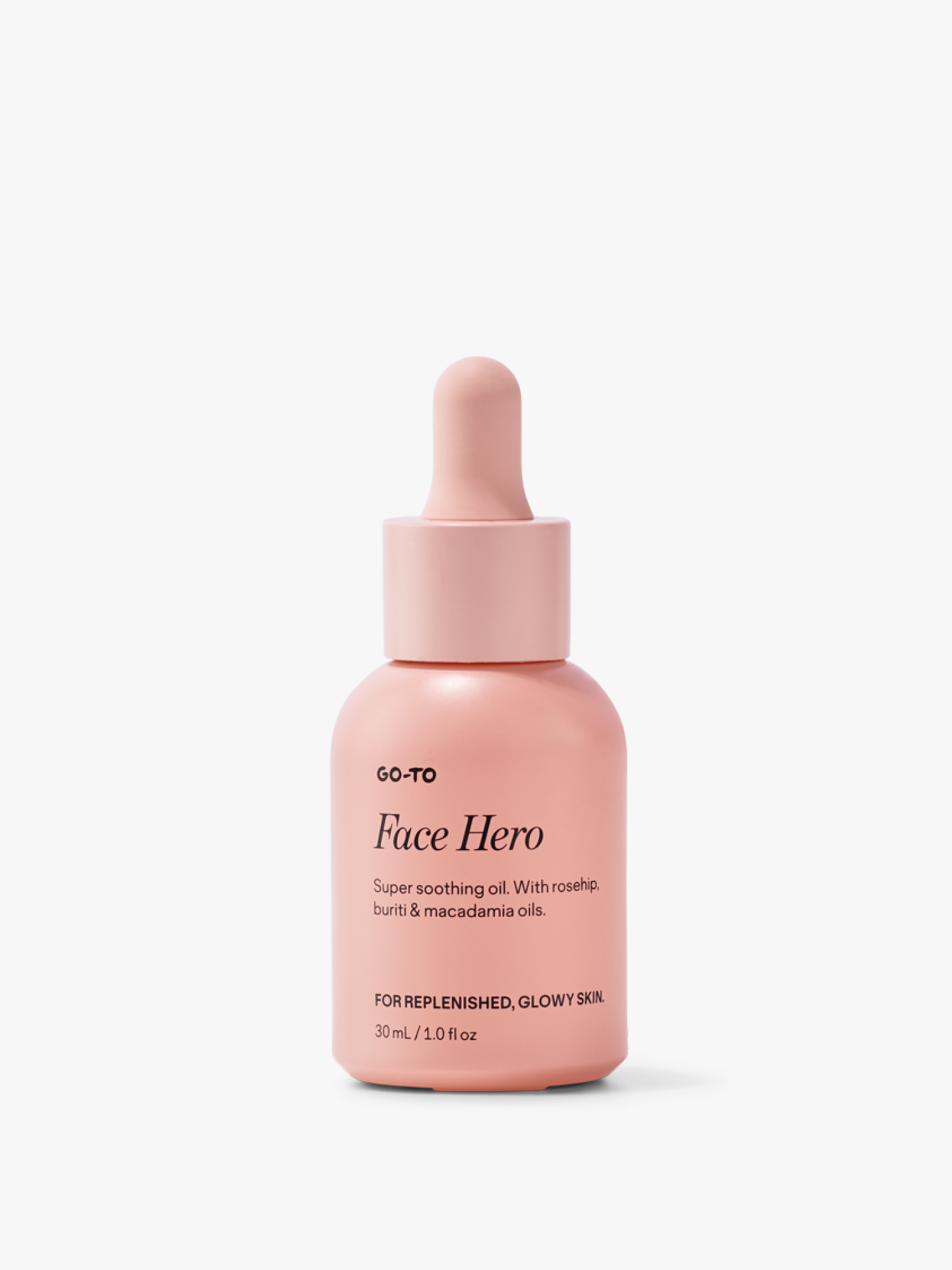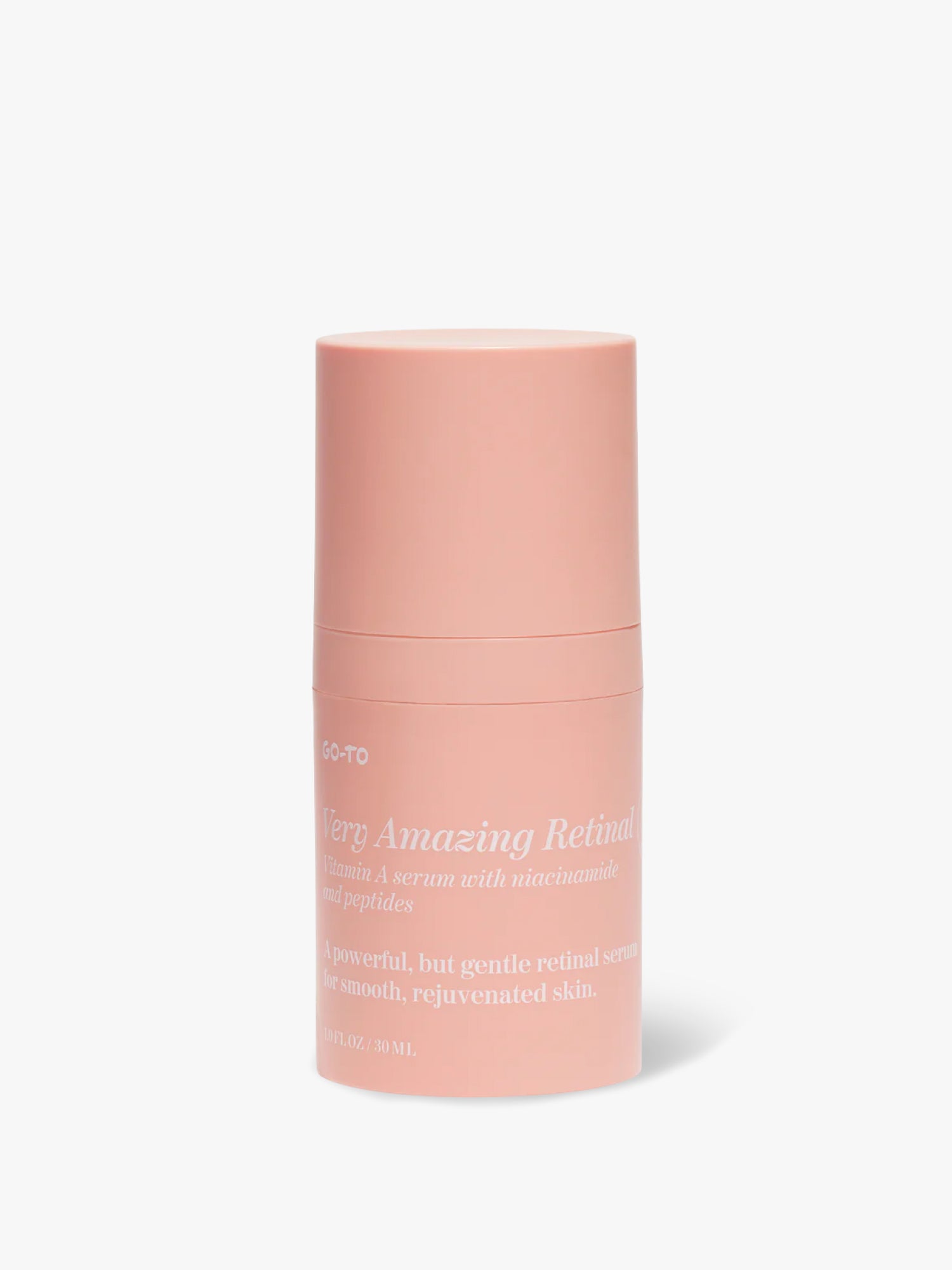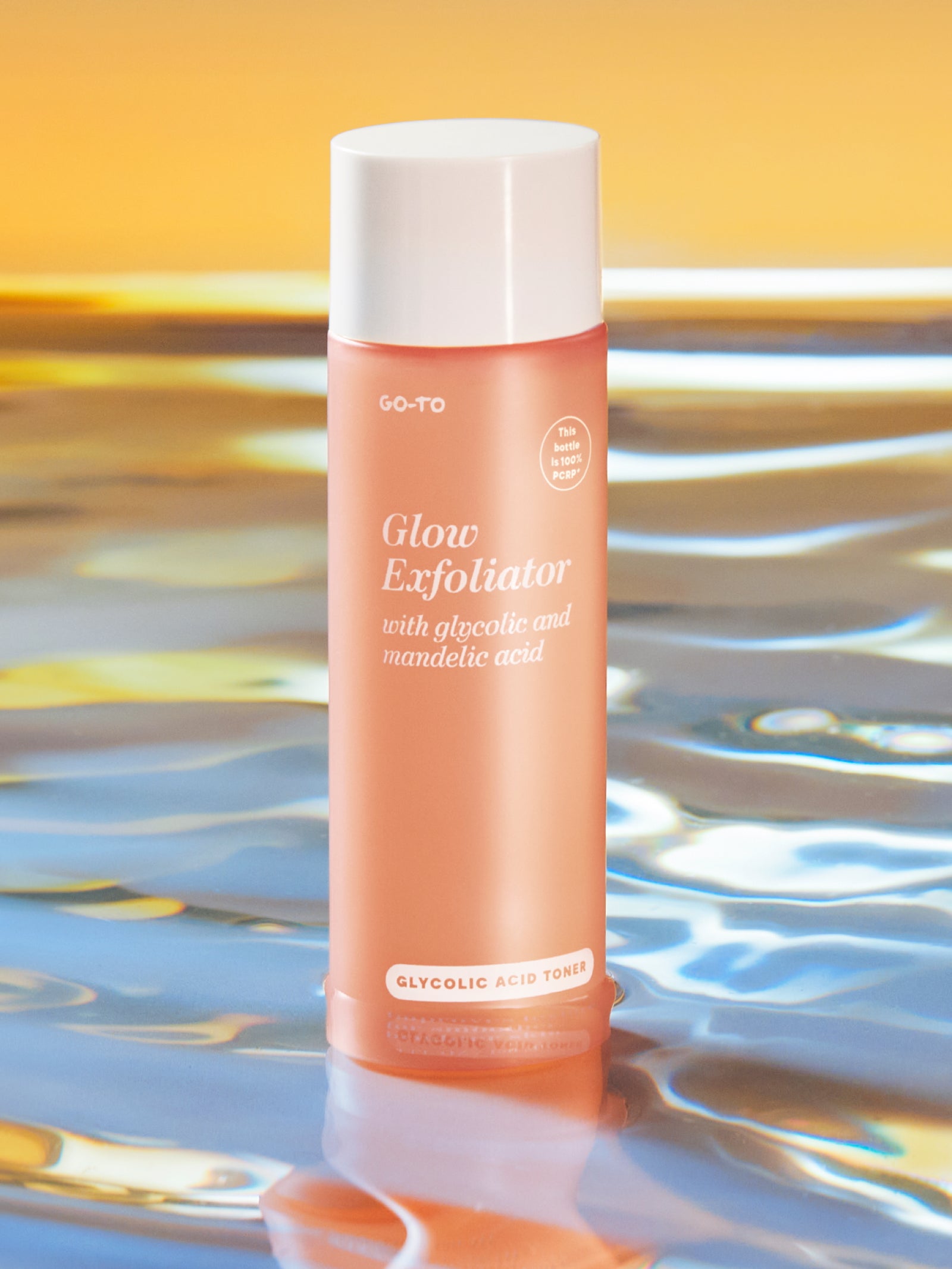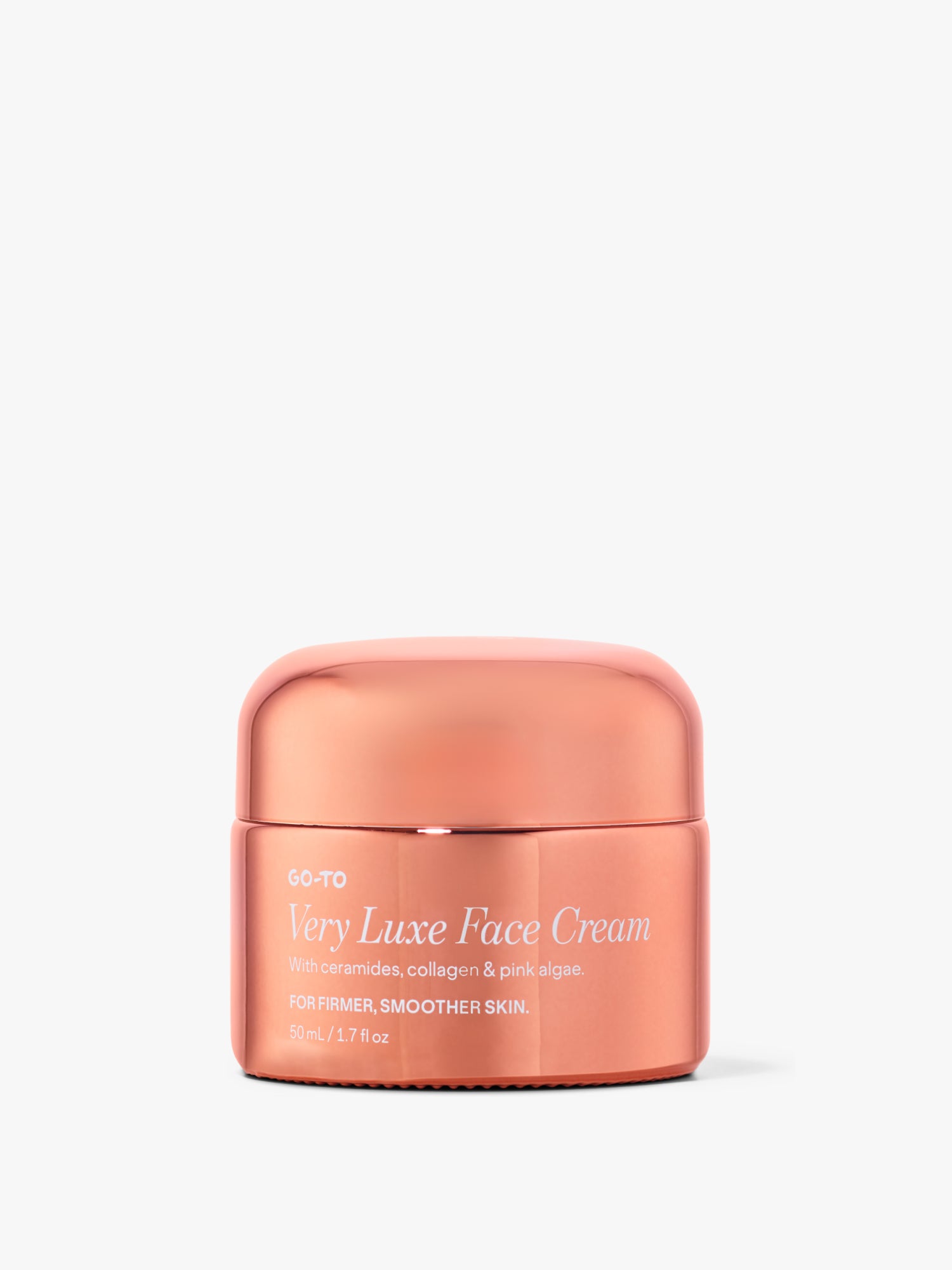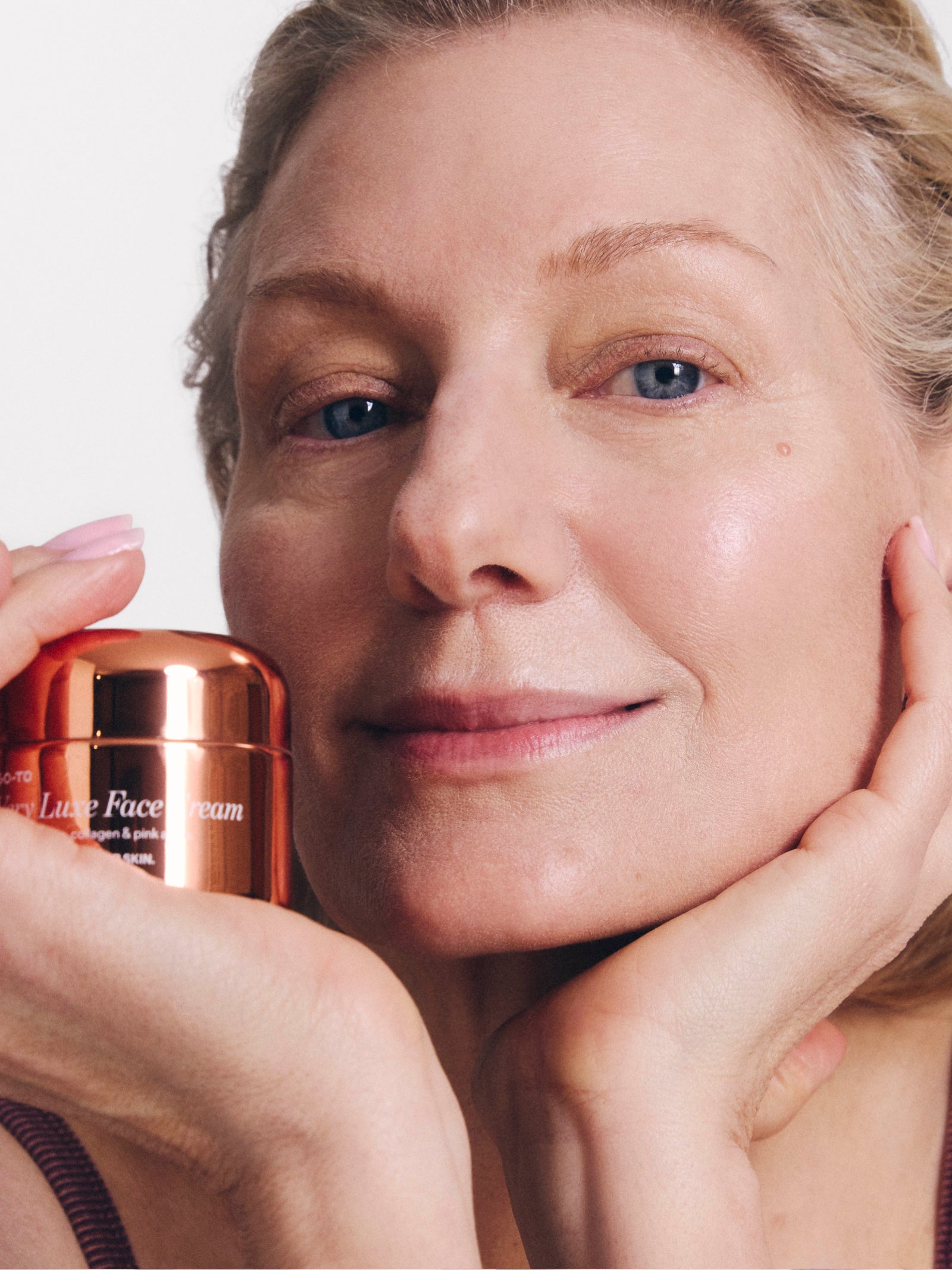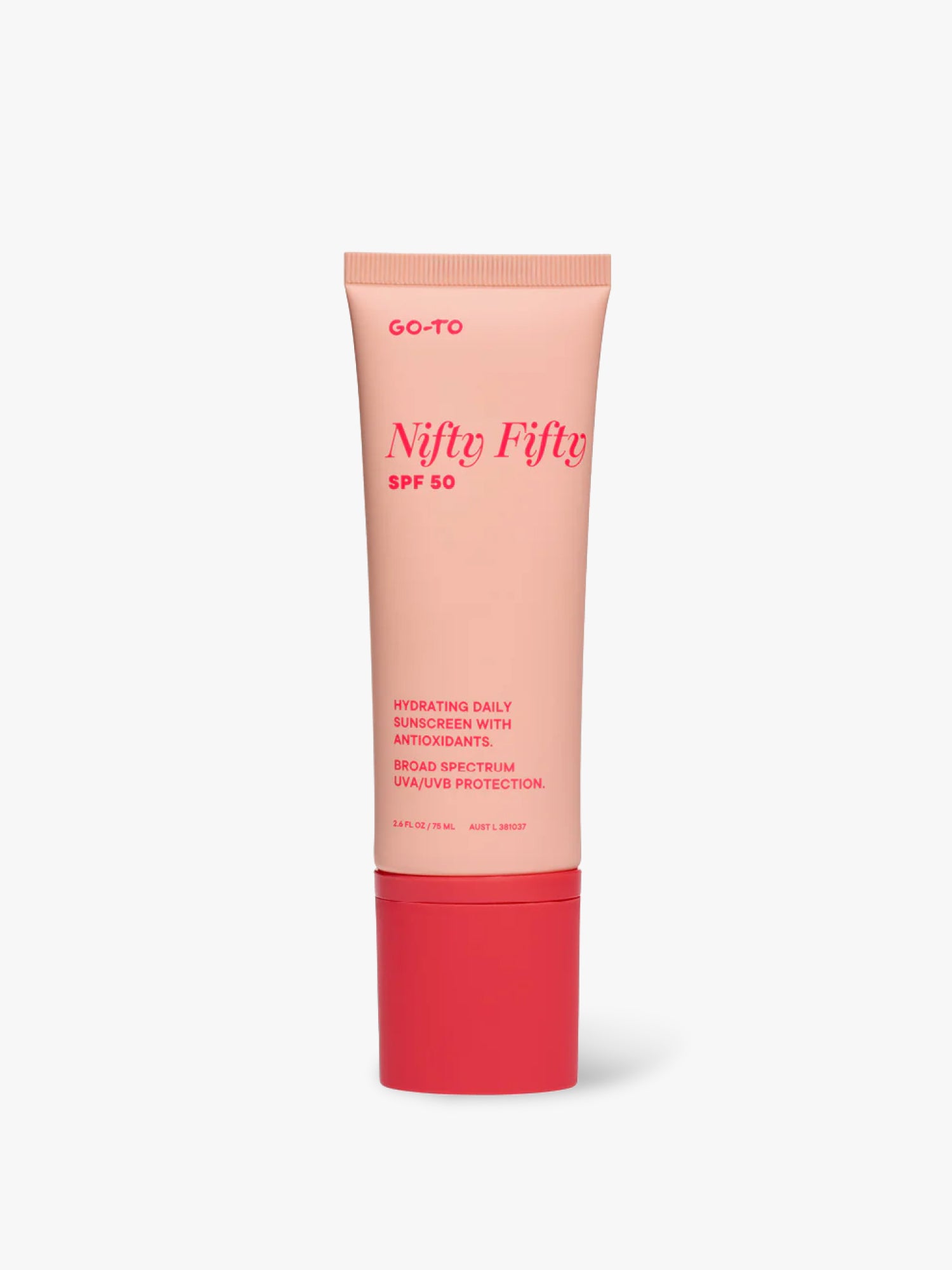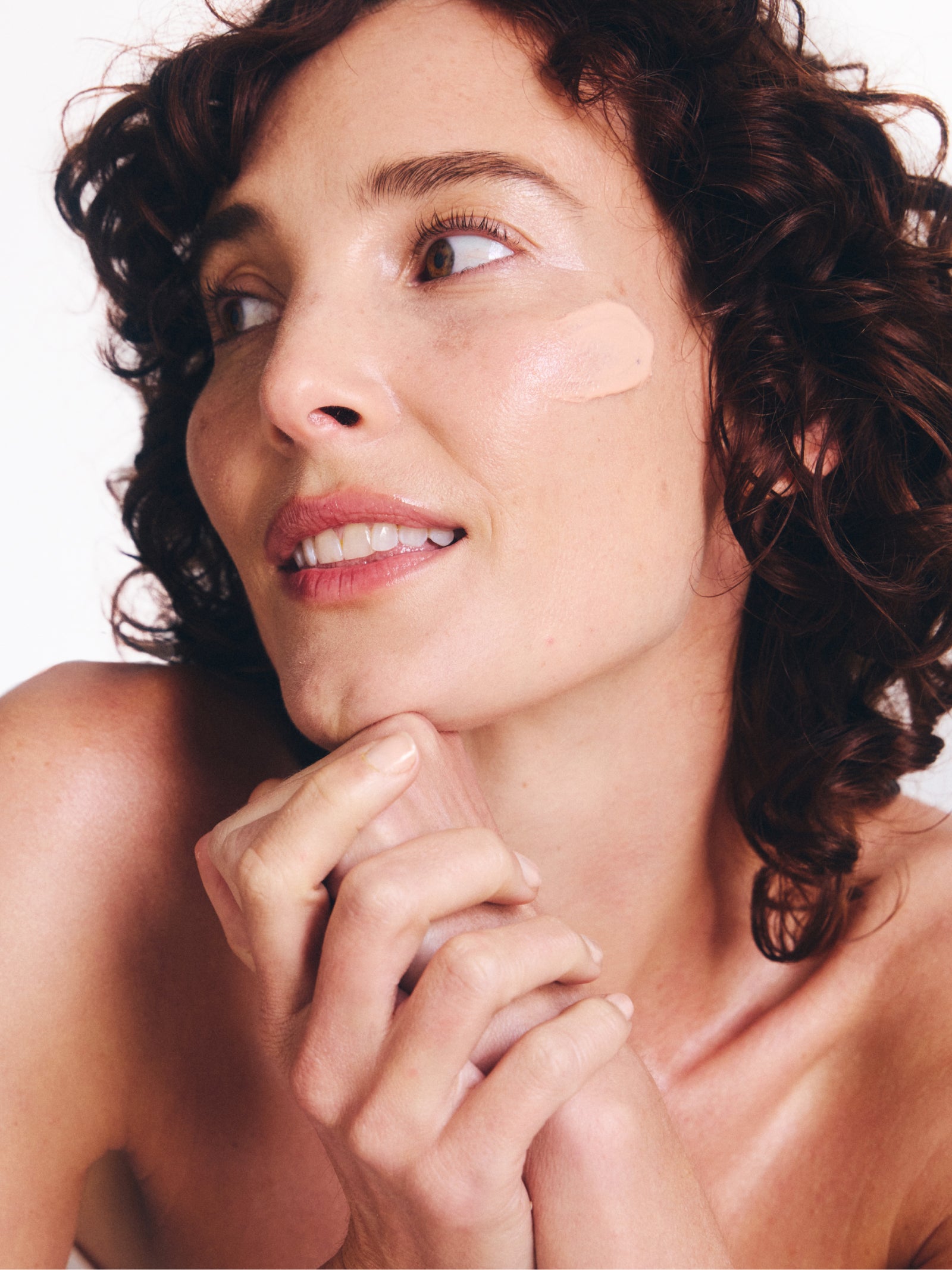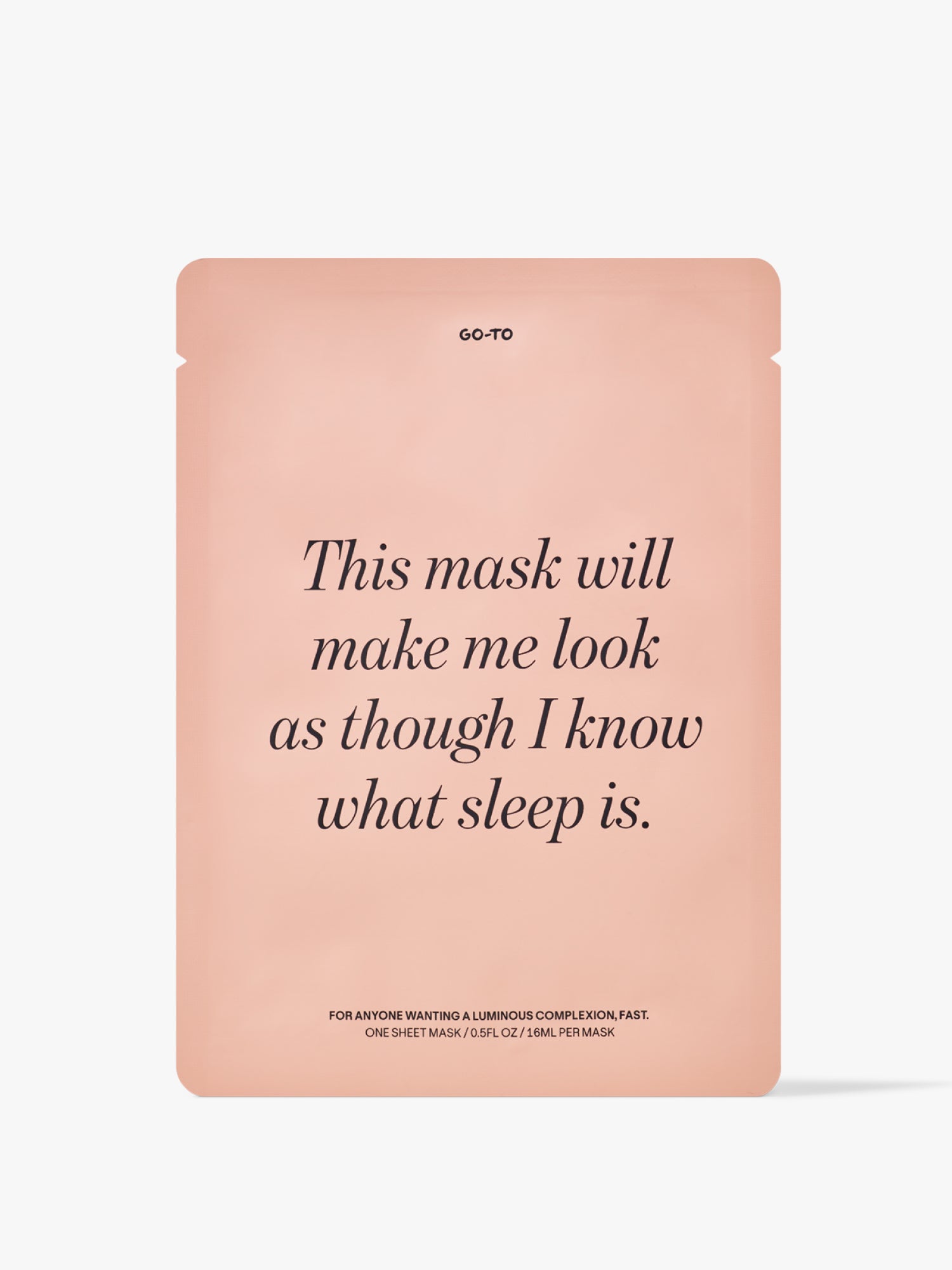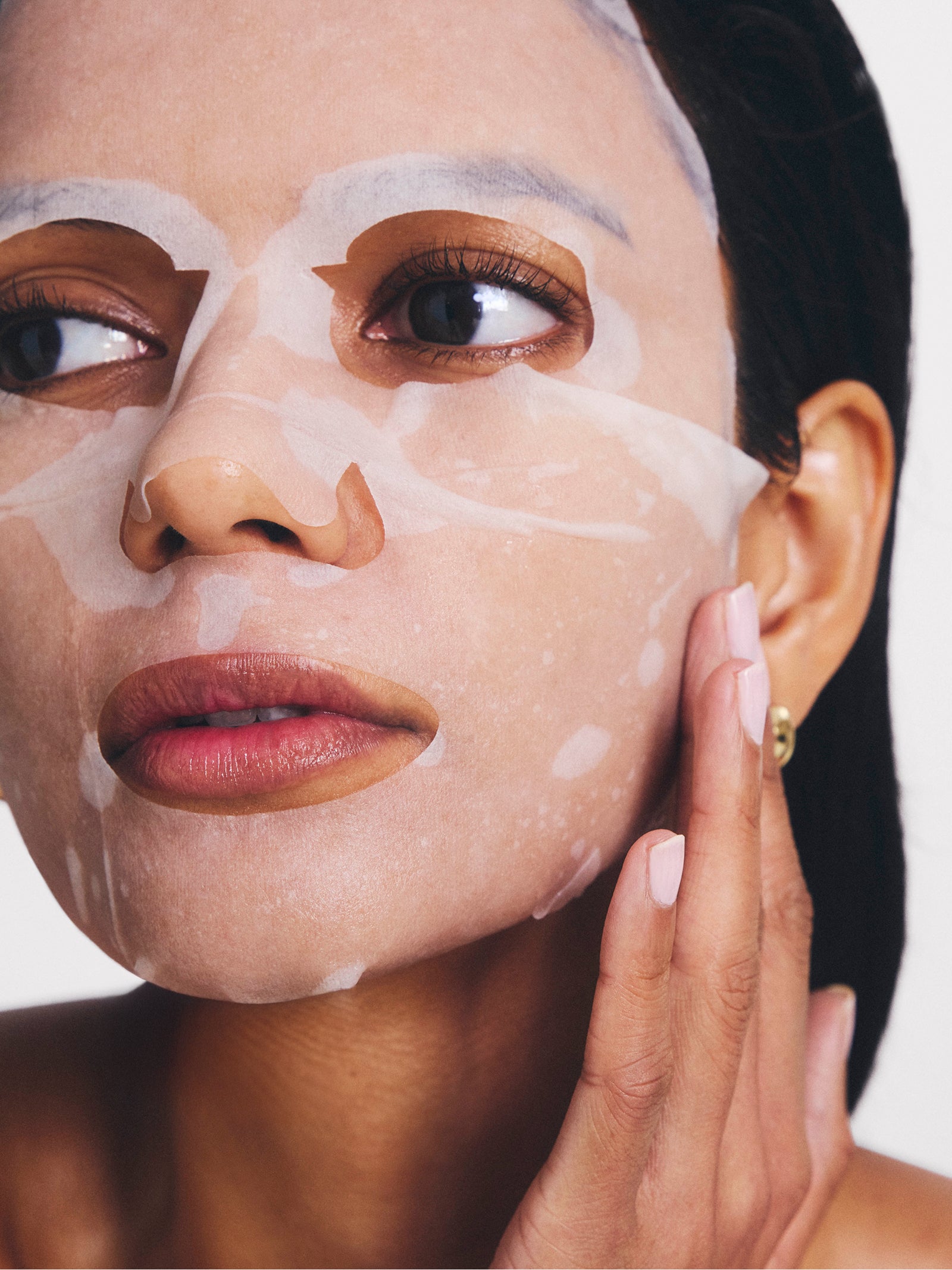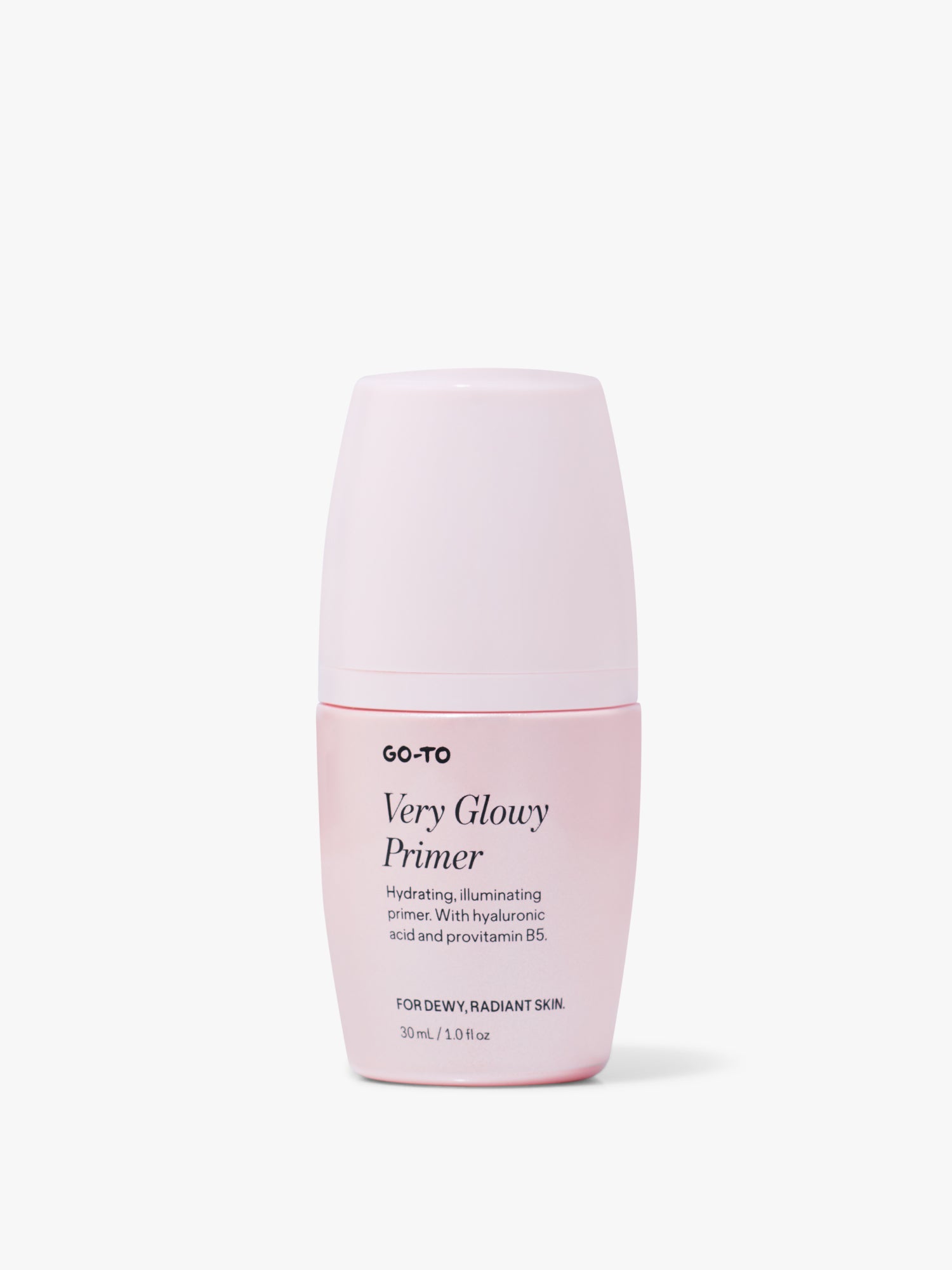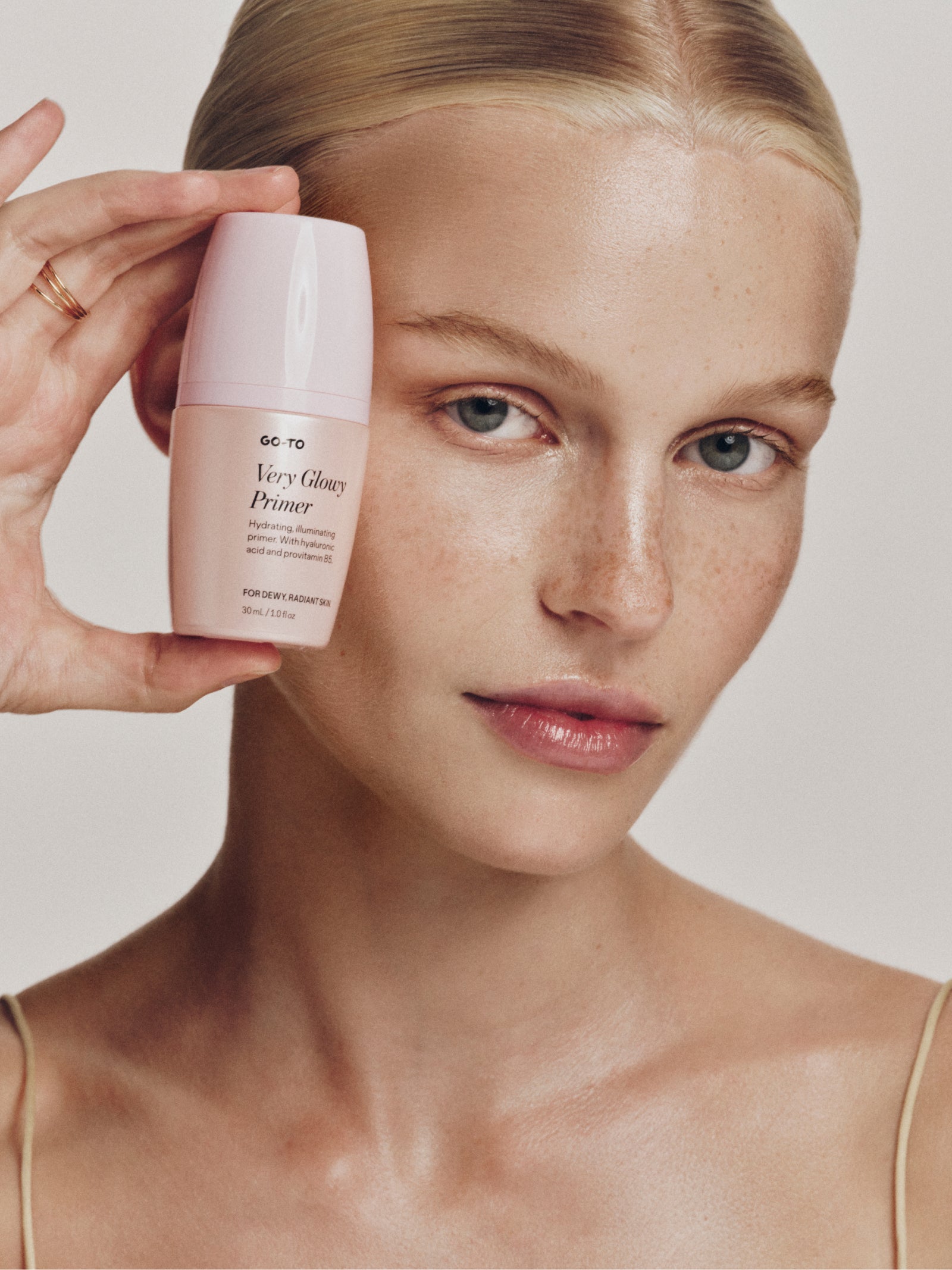Understanding normal skin.
Normal skin is well-balanced which means your face is far less likely to experience breakouts, congestion, or feeling greasy. On the other side of the spectrum, you’re also not prone to flakiness, sensitivity, or skin feeling tight.
Despite the fact normal skin types don’t have any specific issues or concerns, nourishing, hydrating, and maintaining the health of your skin is equally as important. And thankfully, it is possible to build a really hard working skincare routine using minimal products.
What kind of cleanser, toner, or treatment products should I use if I have normal skin?
Here’s a beautifully basic four-step routine that will still grant you serious glow (and protection), every day.
Cleanse! Cleanse well! If you don’t nail the first step, all your remaining skincare won’t get the chance to really sink in and do its best job. Out of gels, oils, creams, mousse, you normal skin folk, get your pick of the bunch. Whichever texture you enjoy the most. Whichever formula makes your face happy.
Treat! With a serum! And yes you can use a different product in the AM, versus in the PM. We recommend it, actually. Switching between a vitamin C for antioxidant protection in the morning, and a hyaluronic acid to restore hydration at the end of the day. Two superstar ingredients that will brighten any skin type.
Nourish! Never skip this! Reach for an oil and/or a face cream that is going to restore moisture to the skin and keep all the hydrating skincare locked in. For normal skin types, this is another case of ‘you do you’. Find a favourite and stick with it. Lightweight, oil-free, buttery. It’s all going to nourish your skin.
Protect! Please! Pick a sunscreen, any sunscreen, and apply it liberally each morning. Especially the ears. Preferably a broad spectrum SPF to help protect from damaging UVA and UVB rays which can cause sunburn, sunspots, ageing, even skin cancer.
How often should I moisturise if I have normal skin?
All skin types (and concerns) (and ages) need moisture. The oil - otherwise known as sebum - that your skin produces is very different to the plant and nut oils in your face cream. So this should never replace a moisturiser in your routine.
Your skin type shouldn’t determine whether or not you need moisture, instead, it should help you determine what type of moisturiser to use. Every day. Morning and night.
As a no-fuss normal skin type, you get to pick whatever feels good. Selecting a moisturiser does not need to be as laborious as if you had oily or combo skin.
Can I use anti-ageing products on normal skin?
Normal skin types can and should use anti-ageing products. Especially SPF.
SPF is the best anti-ageing protection (pun intended!) out because prevention is key. We know that UV rays can cause premature ageing (fine lines, wrinkles, loss of elasticity, discoloration), so what’s the point of having a really great skincare routine if you don’t top it off with sunscreen? You’re pretty much undoing all the work you just put in.
Normal skin types should also look for vitamin A. Because retinoids have countless benefits for the skin. They can: slow the breakdown of collagen, fade pigmentation and age spots, minimise the appearance of wrinkles, help reduce pore size, and clear breakouts. Incorporating a retinol or retinal into your routine will seriously help with skin renewal.
Just don’t go too hard too soon. Vitamin A is a very strong active and can cause a lot of damage to the skin when used incorrectly. You need to find the right formula and strength for your skin type, and concerns.
How can I maintain the health of my normal skin?
So, your moisture barrier, it’s kind of a big deal. You want to keep that top layer of skin as happy and healthy and balanced as can be. It’s what’s going to keep the good stuff in and the bad stuff out; protecting the skin from physical toxins, UV radiation, and transepidermal water loss.
It’s possible to strengthen your skin barrier function by having a simple routine that does not strip the skin; incorporating ceramides, antioxidants, humectants, and SPF protection. That’s all you need.





